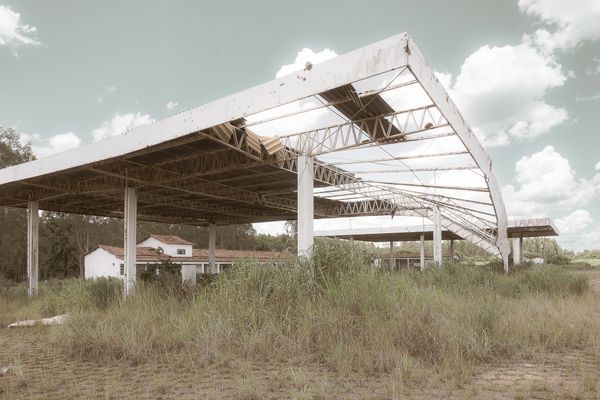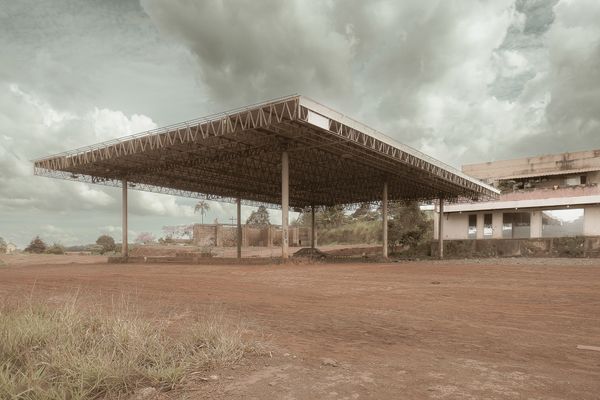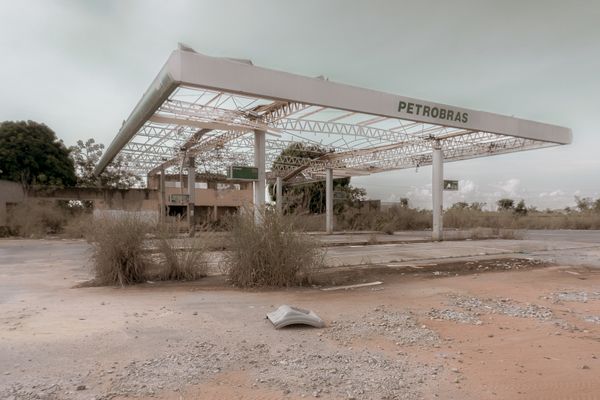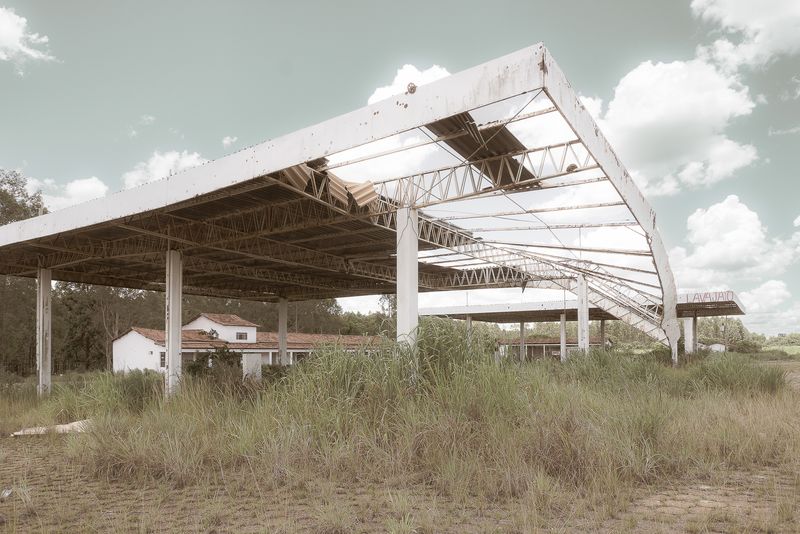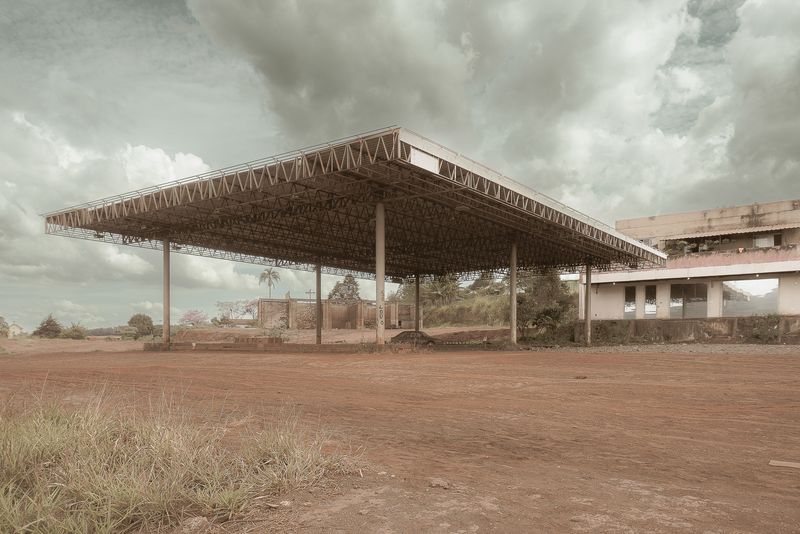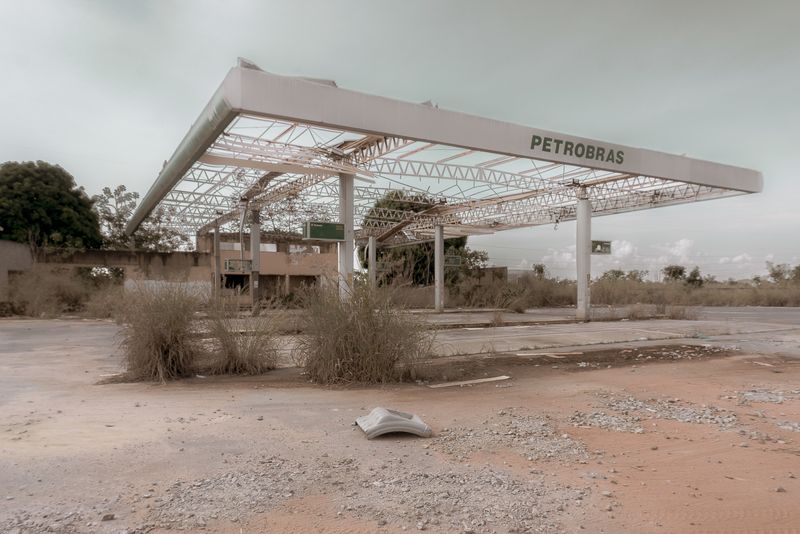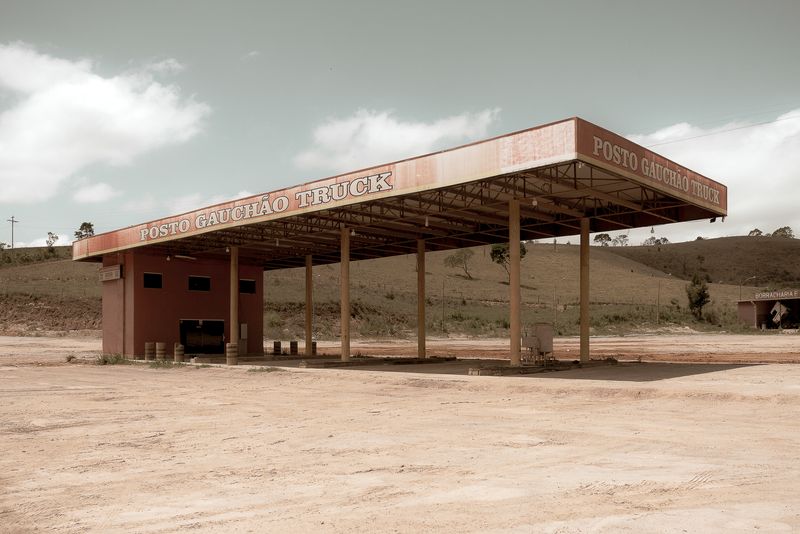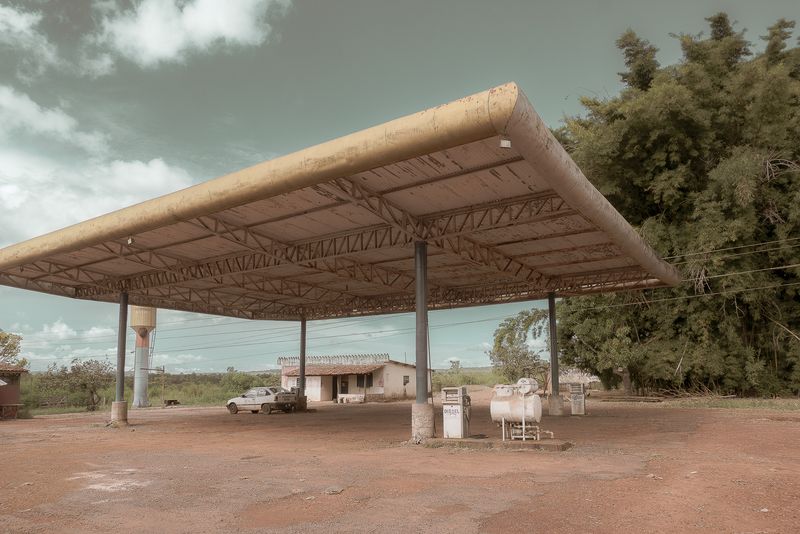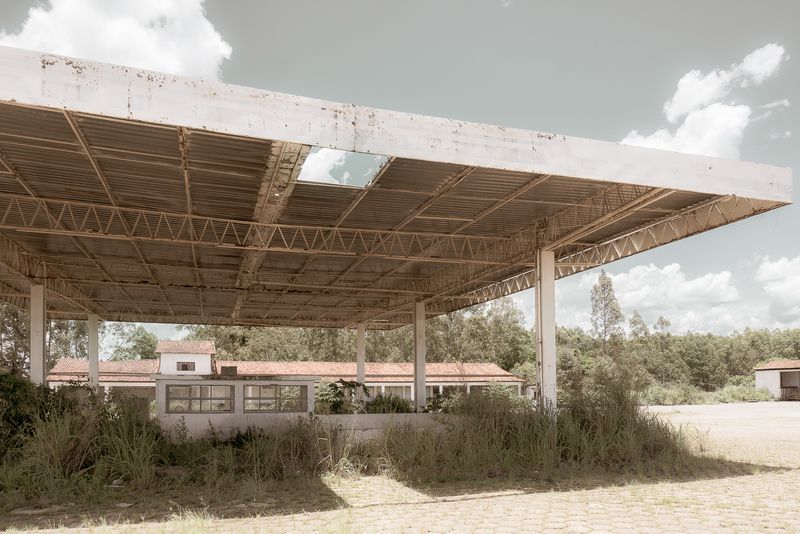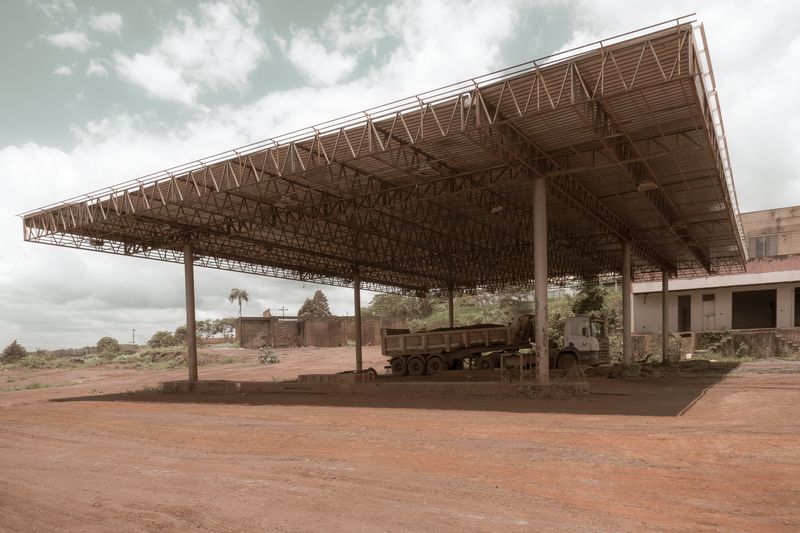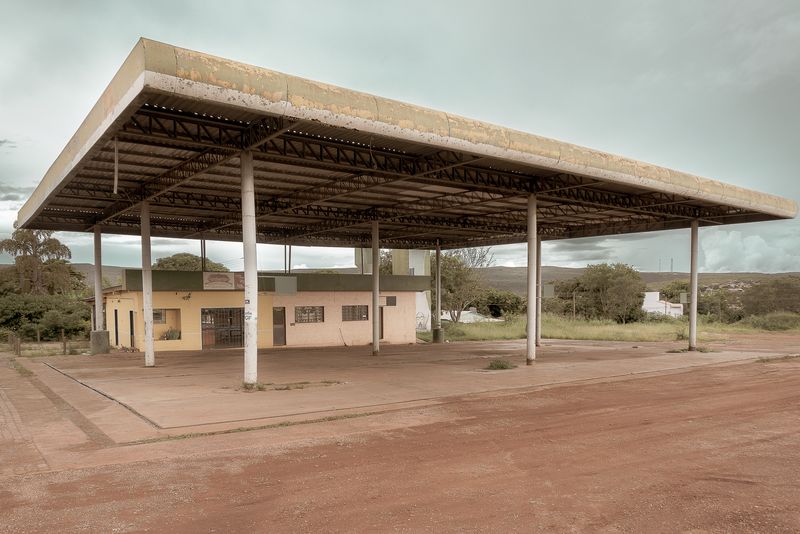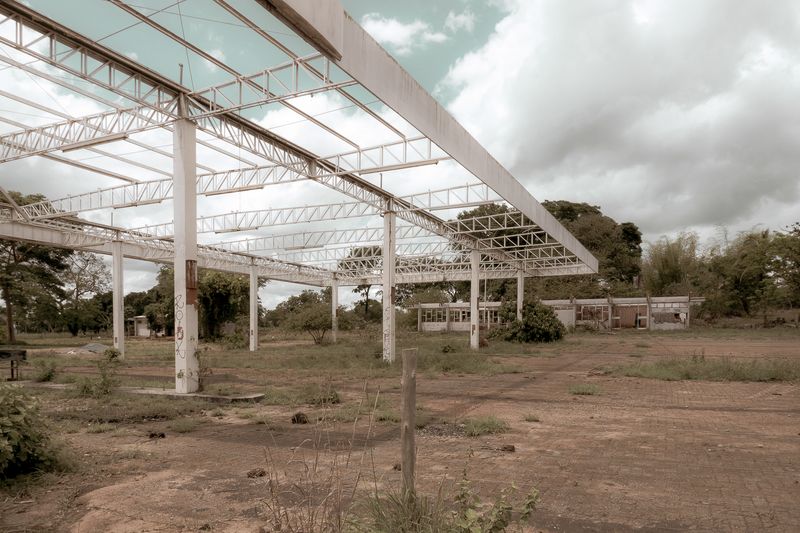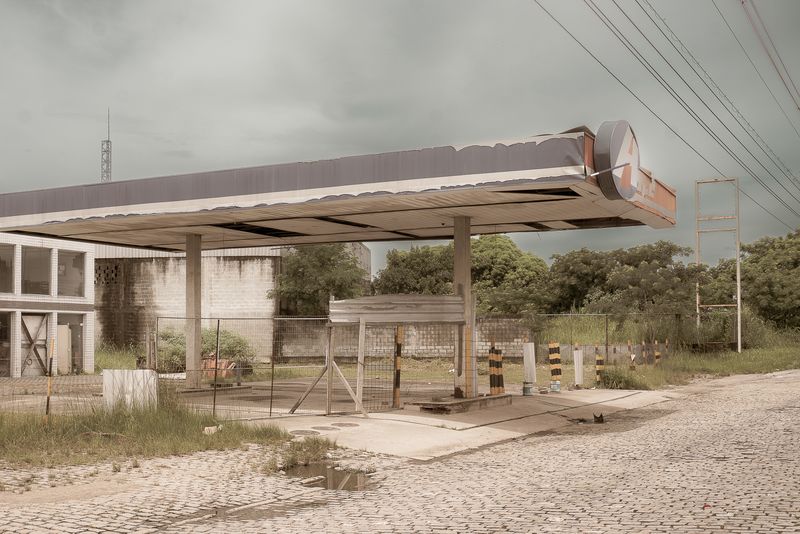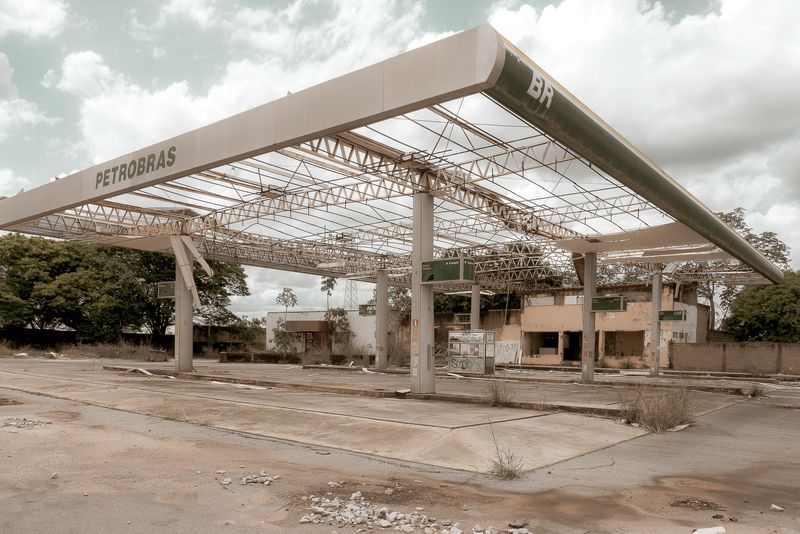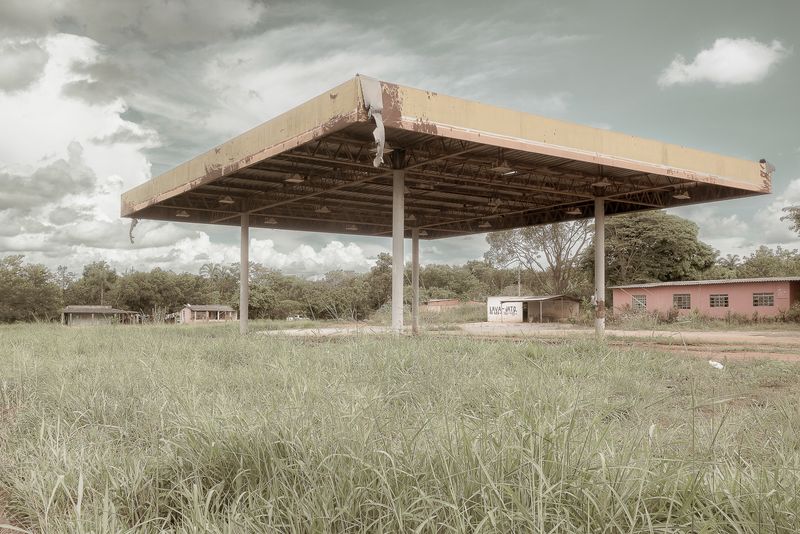Fossils
-
Dates2020 - Ongoing
-
Author
- Location Brasília, Brazil
Photographs of obsolete gas stations in Brazil, a peripheral country of global capitalism, are taken as a metaphor for the failure of this predatory economic model. The buildings look like fossils from the fossil fuel era in which we still live.
Published in 1963, Ed Ruscha's iconic Twentysix Gasoline Stations allows for the inference of many semantic layers. Not by chance, Ruscha's choice fell on gas stations. From the age of 19, Ruscha lived in Los Angeles, immersed in the car fetish culture, to which he turned his critical eye. After 60 years, energy production based on the consumption of fossil fuels has reached intolerable standards. Human existence itself has been threatened by global warming.
In the course of the energy transition we are experiencing, once again we can take gas stations as a metaphorical representation. In the 1960s, Ruscha's gas stations looked ironically at the consumerist world emerging in the US, the heart of global capitalism. Today, images of obsolete gas stations in Brazil, a peripheral country of this predatory economic model, symbolize its failure. They look like real fossils from the fossil fuel era.
